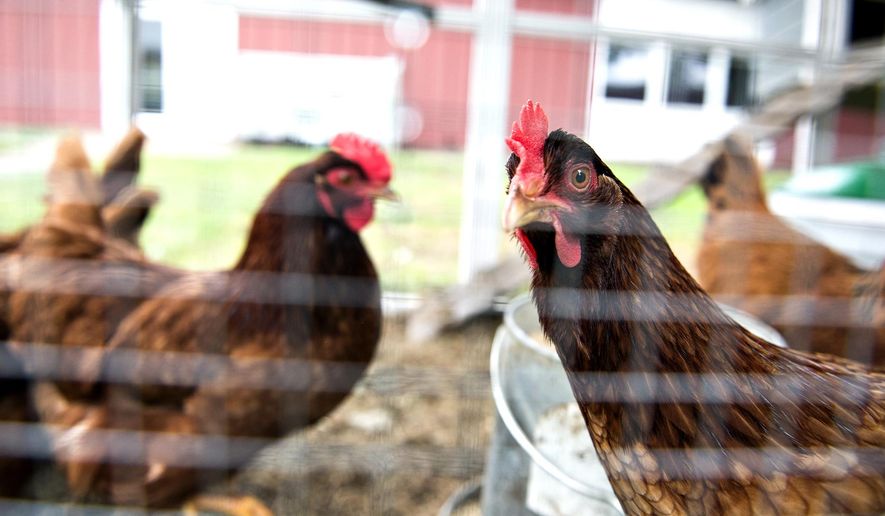DIXON, Ill. (AP) - Some take them scrambled, sunny-side up, or baked in a cookie.
Agriculture students at Sauk Valley Community College also take them in their curriculum.
A flock of 10 red and cinnamon hens are producing hearty, healthy, brown-shelled eggs that Sauk’s cafeteria staff are beating into cookies and other desserts. They also were the star of a recent board of trustees meeting, where egg-salad sandwiches were served.
Ag professor Ryan Anderson was the man behind the plan - and the one who finally answered the question: Which came first, the chicken or the egg?
The chickens came first, after he brought the homeless hens to the school in April, following a Farmapalooza presentation earlier this year that left them with no place to roost.
“They were just chicks when I had the idea to bring them on campus,” Anderson said. “I knew they were going to mature come fall semester, so I thought it would be a good start to the animal science program next semester.”
“They’re low-maintenance, and it’s going to help ease the students into learning what it means to take care of animals on campus,” Anderson said.
He’s starting small with his paltry poultry flock, but plans to bring in larger animals, like goats, and maybe even fish.
“We want to add a farm-to-fork course that gives students the hands-on experience for what it takes to raise an animal to putting food on the plate,” Anderson said.
In fact, if his chickens fail to produce eggs, they’re perfect for the pot.
“They’re hearty, healthy and do well in a free-range environment,” Anderson said.
Sophomore Brynn Blevins, 20, of Oregon, helps Anderson care for the chickens, which can be seen wandering around the agriculture building when class is in session.
“I never thought I’d see them on campus, to be honest. But I think it will help warm up the students to livestock on campus,” Blevins said.
Livestock isn’t the only thing on the ag program’s menu: Sauk has secured a $1,500 donation from Pioneer Seed to install a high-tunnel greenhouse, in which corn, soybeans and other fruits and vegetables are grown on the ground instead of on a platform.
“Selmi’s (Greenhouse in Rock Falls) uses the same type of greenhouse - that’s why they usually have their tomatoes ready before others, because they’re able to grow them earlier,” Anderson said.
Anderson also hopes to see the college install hydroponic gardens, in which plants are grown without soil, by using mineral nutrient solutions in a water solvent.
“They’re all great educational pieces for students and staff.”
___
Source: Sauk Valley Media, https://bit.ly/2OKdjG9
___
Information from: Sauk Valley Media, http://www.saukvalley.com




Please read our comment policy before commenting.